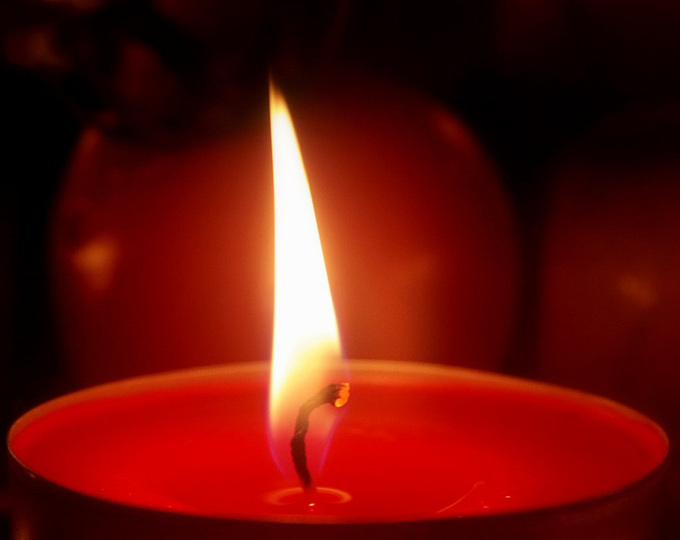Ash Wednesday, Dustification and the End of the World
The End of the World and our True Destiny
PROFESSOR ANTON MEEMANA

http://farm6.static.flickr.com/5122/
Lack of faith in a transcendent God leads to possessive knowledge. Wisdom cannot be possessed but only received gratuitously. To possess something is to lose it. The libidinal desire to own, to possess, to take hold of something is to give up the way of wisdom, the way of endless openness. True wisdom is a vision, an ever-growing and widening vision, not a private possession.
Speculation about the end of the world is a betrayal of Christian message. Such a preoccupation is the slipping away of the day-to-day historical living. Our business is to live each day joyfully and faithfully without apocalyptic anxiety. Unnecessary anxiety is anti-Christian. By living fully we prepare ourselves for any apocalyptic eventuality.
Even if God decides to end the universe today, those who have attained eternal life will remain in that state forever. Nothing will be taken from them; nothing will be lost to them. Even after the end of the world, the eternal life continues.
Whatever graces they may have been granted will never be lost to them. Eternal life is a permanent reality and nothing can jeopardize or jettison it, not even the end of the world.
The end of the world is not the end of God’s love, creativity, compassion and mercy. The end of the world would be an act of his unrestricted, unconditional, unreserved love. Both the beginning as well as the end of the universe is a work of Divine love. God is never malicious, merciless, ruthless, heartless, cruel or mischievous.
The end of the world is insignificant in comparison to the love of God. Absolutely nothing can separate us from the love of God. Not even the end of the universe can separate us from it. The universe has a beginning as well as an end. But its end is not like any other end we know of.
The shape of the future to come cannot be known exactly. This massive lust, gnostic libido, cognitive concupiscence for certitude is symptomatic of false prophets and futurists. Wise person lives by faith in a God whose presence is ever active in history.
Futurism is false knowledge. Wisdom comes from doubt, anxiety, questioning, “the waiting, the periods of aridity and dullness, guilt and despondency, contrition and repentance, forsakenness and hope against hope, the silent stirrings of love and grace.” (Eric Voegelin)
Ash Wednesday reminds us that the way to heaven is a dusty and a sweaty path.
Christmas as a Decision to Love
Christmas day is a decisive day, a day to make some tough decisions. Every decision we make is either for God or against God. There is no neutral ground. Life is never neutral. There is no third possibility. Either we live in and with God or we do not. And if we sincerely feel that we do not, then we can always go back to the divine path. Every decisive day is a joyful day if we know how to discern in God. Decision-making is not a reason for fear and trembling.
Every crisis is a spiritual opportunity for us to deepen our character and broaden our horizon; the deeper the crisis, the greater the opportunity. Every day we need to make a decision to follow Jesus Christ and each subsequent day we need to renew, reinstate and reiterate that decision for to follow Christ is an ongoing decision.
If humanity is to progress, Christ is inevitable. No one can kick him out of history. Jesus restores in us our capacity to love for he is the true lover par excellence. Jesus is the sinless one (Sebastian Moore) for he gives us back our capacity to love. Sin blocks our true nature which is to grow in love.
Jesus has called us out of bondage, out of captivity, out of idolatry. The one who loves mostly is the freest innermostly. The one who loves freely lives joyfully. Christ is closer to us than we are to ourselves. In Christ, there is true freedom and there is no any other source of freedom except in Christ. Military victories cannot restore real freedom. Christ is our true freedom. To restore and to maintain freedom, people need to live like Christ.
Love indwells amongst us, takes flesh in the midst of us. Love makes its tent amongst us. Love makes a permanent abode in our slums, shanties, and shabby shelters in order never to leave us. One does not need to be a holy person to recognize it. A sinner’s recognition of this truth is the beginning of a new prospect of a new life.
It is true that people seldom change or some will never change significantly. We need to look at such people very sympathetically and not judgementally. Even if they do not want to change, they deserve our love, patience and sympathy. It is true that people are lazy, selfish, complacent, greedy, evil, cruel, vengeful, hateful, arrogant, stupid, silly, idiotic, loathsome, banal, ruthless, lustful and weak. But still we have to love them precisely because people are such.
The divinity of Jesus is not a separate reality but hidden, contained deep within his humanity. Humility is another name for humanity. Humility is not timidity or backwardness or feebleness. It is born of innermost freedom, strength and magnanimity of one’s character. Humility is the virtue of the brave, the strongest and the courageous. A weakling can never radiate it or practise it. Pride is the existential condition of the weakling. That is precisely why humility is such a rare virtue amongst us humans.
This is the conclusion of Professor Anton Meemana’s article on Christmas. It is an honor for me to have known such a remarkable and wonderful human being. Like Christ from birth up to His final years on earth the persecutions He encountered did not deter him to find the value of His birth, life and death.
Professor Meemana is very much alive after having his name constantly in the roster of established critics of the Sri Lankan government. His flight to the Philippines during the height of the methodical arrest and execution (that includes lynching) of any oppositionist was unmistakably miraculous and providential. This was despite his being an atheist, a staunch believer of the Marxist ideals and Darwin.
For more than twenty years he lived alone without any relatives in the Philippines. He found a home in many people’s heart all over the Philippine archipelago.
This final piece of his essay talks about our belongingness to something more profound than any place we can imagine.

 RSS Feed
RSS Feed

